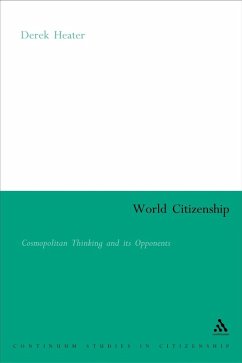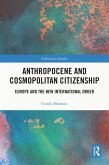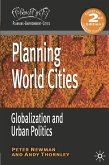Recent years have seen the development of a substantial literature on cosmopolitan political thought and the idea of world citizenship. In this book Derek Heater offers a concise and accessible survey of this complex debate. He aims both to interpret these concepts and to assist in their comprehension.
Central to the organization of the book is Heater's claim that the notion of world citizenship remains weak unless it is able to stand alongside and be comparable to citizenship in its traditional state-embedded sense. Thus, the core chapters are arranged according to a basic breakdown of the key components of citizenship, covering: identity and morality; law and civil rights; social, economic and environmental citizenship; political citizenship; and competence and education.
The author outlines and assesses both supporting and opposing arguments, illustrating his analysis with wide-ranging historical and political references, from the Stoics to the present day.
This is an essential text for those studying citizenship and will also be of great interest to students of political theory.
Central to the organization of the book is Heater's claim that the notion of world citizenship remains weak unless it is able to stand alongside and be comparable to citizenship in its traditional state-embedded sense. Thus, the core chapters are arranged according to a basic breakdown of the key components of citizenship, covering: identity and morality; law and civil rights; social, economic and environmental citizenship; political citizenship; and competence and education.
The author outlines and assesses both supporting and opposing arguments, illustrating his analysis with wide-ranging historical and political references, from the Stoics to the present day.
This is an essential text for those studying citizenship and will also be of great interest to students of political theory.









